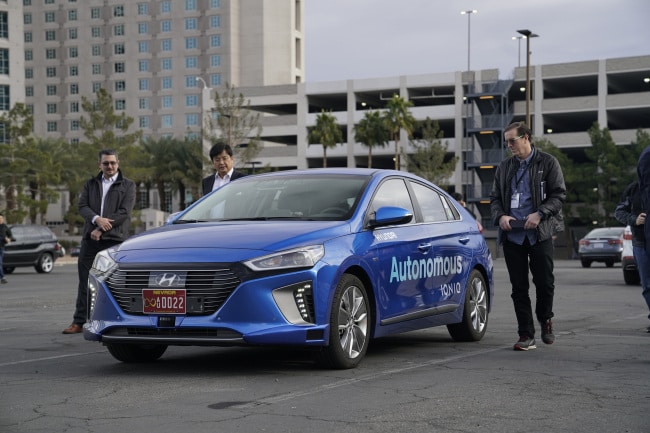Samsung Enters the Race for Autonomous Cars
Electronics firm Samsung has received approval from the South Korean Ministry of Land, Infrastructure, and Transport to start testing autonomous cars on public highways in the country. Using fellow Korean firm, Hyundai Motor to test their technology, Samsung will compete with Apple, Uber, Google’s Waymo, and many other tech companies testing technology relating to self-driving cars. The cars will be fitted with laser and radar sensors made by other companies, while Samsung will provide the artificial intelligence system and deep learning software. A spokesperson for Samsung told Reuters, the company would not be entering the car manufacturing business, but instead developing ‘deep learning algorithms for autonomous operations.’
History with the Automotive Industry
Known predominantly for their mobile devices, Samsung does have some history with the automotive industry. In March, this year, Samsung purchased US automotive and audio supplier Harman International, for USD$8 billion. The move was a way to seize on the opportunities autonomous vehicle technology could bring, explained Samsung’s President and Chief Strategy Officer Young Sohn. It would also bring together Harman’s audio brands and capabilities with Samsung’s display technologies, to deliver enhanced audio and video experiences, he said. As Samsung will be developing its own computer modules and sensors for the cars, the acquisition of Harman, which develops such software, is a step towards Samsung’s own development of autonomous technology.
According to HI Investment & Securities analyst Song Myung-sup, Samsung is a latecomer to the autonomous vehicle sector. “Samsung’s entry into the autonomous vehicle business is part of an effort to raise its competitiveness in the automotive electronic component business,” said Song. Samsung has also previously pledged to support the Internet of Things (IoT), essentially an environment where everything is connected to the internet, which autonomous cars are expected to rely on for car-to-car and car-to-road communications. Samsung’s Chief Executive BK Yoon promised over USD$1 million in funding for developers to help create IoT back in 2015. It is still unclear how self-driving cars will become available for the public, however, and whether technology firms, like Samsung, will turn into car firms, as Elon Musk’s Tesla has.
South Korea Builds a City for Autonomous Cars
Samsung is not the only firm interested in autonomous vehicles in South Korea. The South Korean Government is actively pushing for new autonomous car development with the building of K-City, an area built for the express purpose of testing self-driving cars. According to Business Korea, the 88-acre ‘city’ will contain bus lanes, expressways, parking lots, and other areas autonomous cars will learn to navigate. By having a controlled area for testing, the cars will be able to repeat maneuvers multiple times for greater accuracy. Business Korea says that experts will benefit from data collection on-site at K-City, and this data could be used in urban planning or insurance purposes as well.
The South Korean Government has also granted permission to 19 other companies to test autonomous technology in South Korea, in the past year. Tech companies SK and Telecom, as well as, automotive firm Kia, are also busy developing technology for testing self-driving cars. Hyandai Motor was the first firm to gain approval, having gained permission in February, last year. Since then, regulations in testing have also eased, with companies only requiring one human driver present in the vehicle, rather than two. South Korea has also laid the groundwork for allowing cars without steering wheels or pedals to be used in their tests. Something which, California’s proposed amendments on regulations would enable, and a law Michigan recently passed.
Competition in the Industry
Samsung’s news comes after Apple announced, they too, had been granted permission to test self-driving cars in California. A modified Lexus RX450h SUV was spotted leaving an Apple facility in early April. Like Samsung, Apple is rather late to enter the game and according to Vanity Fair, the game is becoming more cut-throat. Google’s parent company Alphabet, which has the self-driving division Waymo, recently sued Uber for obtaining schematics for self-driving sensors it acquired from purchasing Otto; a vehicle company started by a former Google engineer. Uber, which has plans to replace its drivers with an autonomous fleet, may be out of the industry if Google wins the lawsuit. The race is on, to see which firm will make the autonomous vehicle technology of the future.
















There are no comments
Add yours